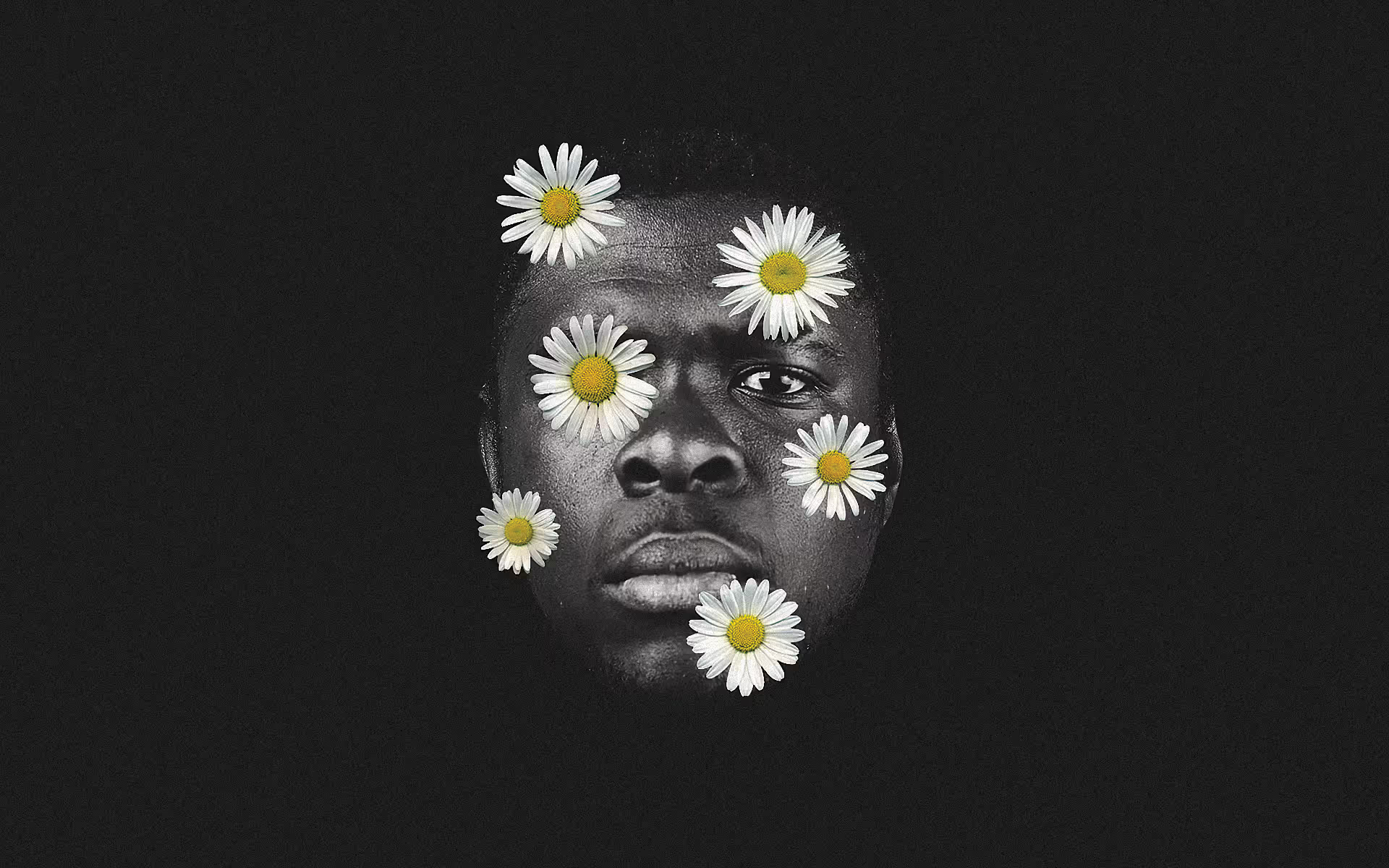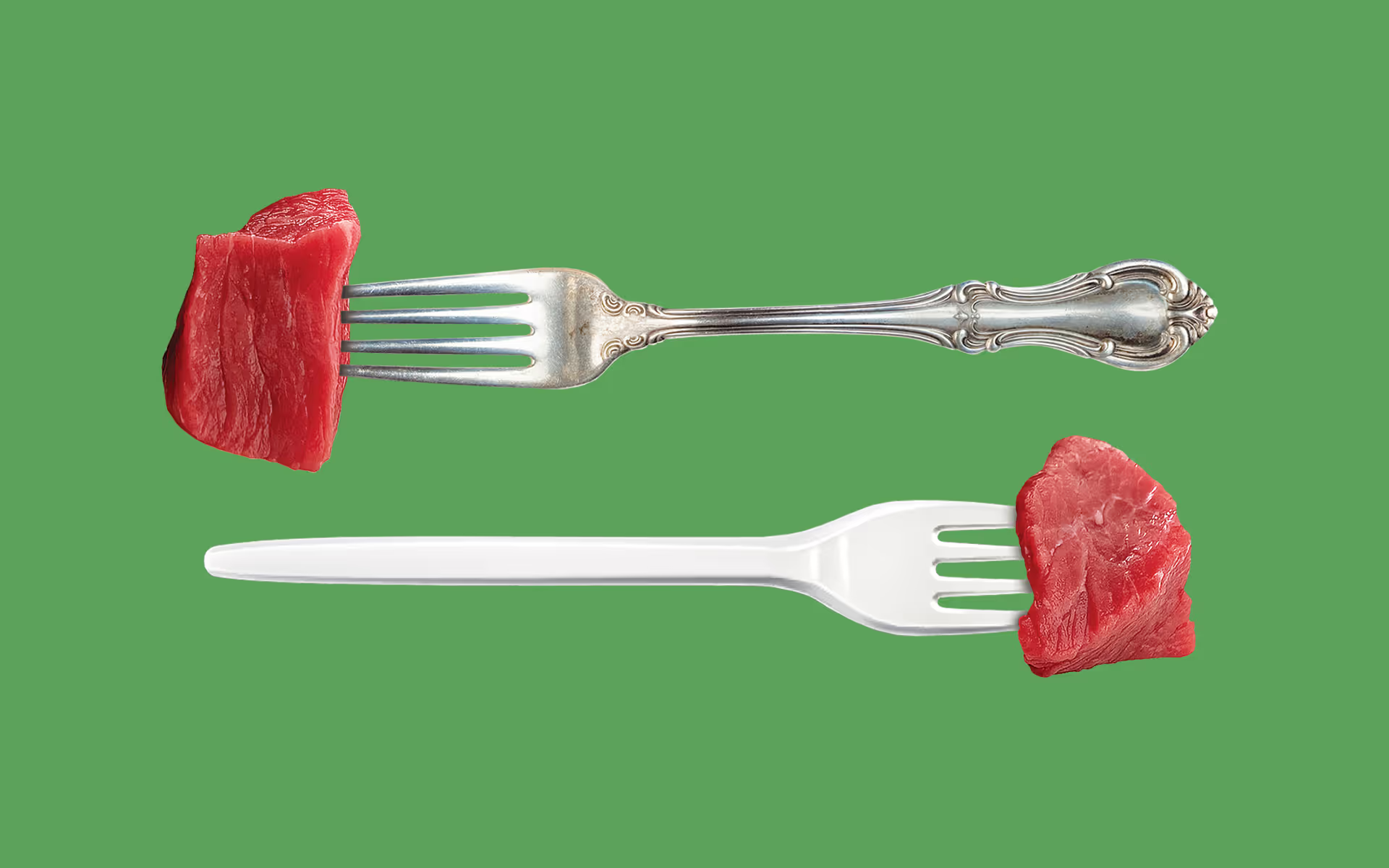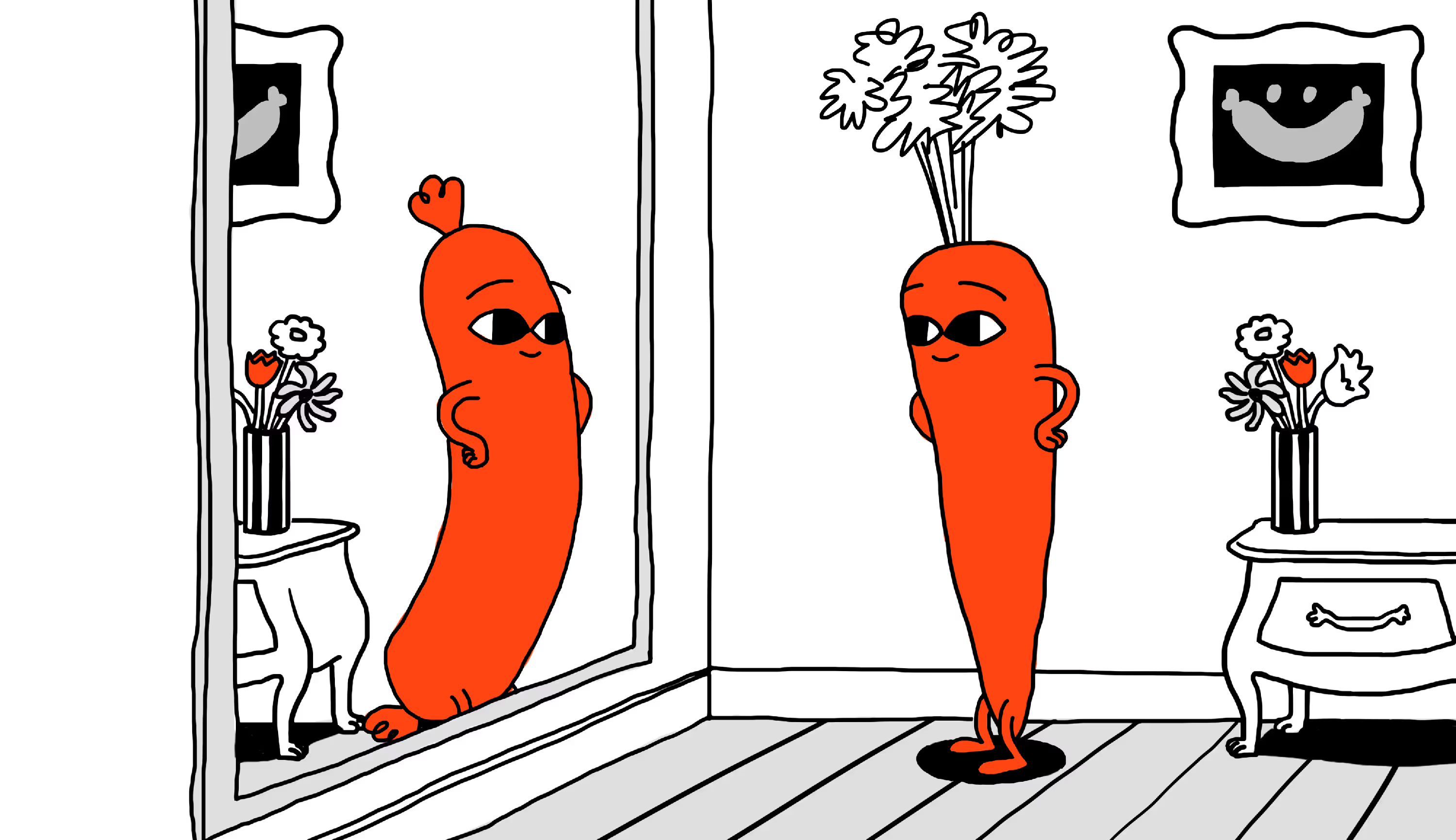“Vegetarians, and their Hezbollah-like splinter faction, the vegans … are the enemy of everything good and decent in the human spirit. To live life without veal or chicken stock, fish cheeks, sausages, cheese, or organ meats is treasonous.” Anthony Bourdain
The hatred of vegans is basically human tradition by now. Even in ancient Greece, the then-called “Pythagoreans” were mocked and ridiculed. Being Balkan, I too was raised to dislike the herbivore. However, I became the sum of all my fears. Today, I am 99% vegan. What is the 1%, you ask? In the industry, we call it R&D, but even I would question myself on that rationalization.
However, I am vegan enough to be left out of most dinner parties - that’s when you truly know. But you see, I still don’t say I am vegan. I say “I eat vegan” or “I eat predominantly plant-based.” I dance with words like a ballerina, just not to be associated with veganism as it is currently perceived by oh-so-many. That's strange behavior, I admit. But often I feel that if I honestly speak about my diet, that it could cause tension, and I like to conserve my energy.
And to think, I used to be a cool cat, ate whatever I felt liked, whenever I liked, and I could end up with my friends in any sort of culinary adventure - be it trash or fancy. The best part was, nobody cared. Alas, long gone are my glory days. I have turned my back on my old carefree self, I am uncool now, and instead of meat, I worship oatmeal and look at glee with any food that comes in beige packaging. What have I become?
I often wonder, in what moment of my life did I start defying my own upbringing and beliefs?
Becoming the very thing I've feared
I remember making pancakes with Nutella when my first roomie made a statement that cracked my defensive walls and changed the course of my nutrition forever. He said, “I find it odd how we obsess over the taste of food and not the effect food has on us.” Not only did his reasoning open my mind, it was also his chill “opinion-bending curiosity” and tone that made an impression. I started listening to my body after meals and soon found myself not eating meat if I had work to do because digesting meat made me tired.
Years passed by, much has been read, and many feelings after feeding had been felt. Three new facial hairs later, and suddenly I, who was once a passionate carnivore, not just ate vegan but became a plant-based business owner. What a cruelty-free twist of fate.
Due to years of research, I thought that my newfound nutritional journey made sense - good for health, good for the planet, good for animals, good for food security. Good. I felt great, and the food I started preparing myself was way more exciting. Also, going plant-based made me spend more time with food, which was a benefit on its own, as my previous relationship with food was quite superficial. Consequently, the relationship with my body was superficial.
I’ve once read a surprising statistic - more than 70% of people agree with the basic concept of veganism - eating less meat will help not only animals but also help slow climate change, and feed the growing population. It puzzles me, how is it possible then that more people don’t go vegan if they understand the logic? And where does the disdain for vegans come from? And is this phenomenon somehow connected?
Reason is not the reason
I had to open my first plant-based business to find out - a plant-based bistro & market with its own line of original products. One day, we were presenting our buckwheat sausages and chickpea cheeses to a group of B2B salespeople. These peeps were carnivorous as fuck. But hey, they were enjoying our products and I know enjoyment when I see it. The genuine finger-licking pleasure was oozing from their faces, as it should since we made some dope shit. I approached two people from the group as they were munching, and the guy looks at me and says:
“Wow man, I gotta give it to ya. This is really, really good. Like actually good. But you know, it’s not for me.”
That response haunted me the following several days. How can he say he likes it but claim it’s not for him at the same time? What did he mean by “not for me”? Like, good flavors are not for him? Not a fan of culinary enjoyment?
Then it dawned on me …
Identity, tribalism & ideology
I should have known. I teach branding, mostly to young business owners, and one of the exercises I give my students is to write down their product benefits. Not just functional, but also emotional, self-expressive, and social. The last two are basically answering the following questions - “who do I become when I buy/use this product/brand” and “who are the type of people I relate to when I buy/use this product/brand?”.
We don’t just buy brands anymore; we join them. Like tribes. So, would you join a group of people you have nothing in common with? Or who annoys you?
This study shows that the number one reason why people don’t go plant-based isn’t price or taste, nor is it convenience. It’s identity! Of course, who wants to belong to vegans -literally the second most hated group of people according to public polls (first place went to drug addicts)?
According to Dan M. Kahan, who has been studying how ordinary people evaluate complex societal risks, conforming our beliefs to group beliefs is “exceedingly rational.” Even when group views clash with our own, we’d still rather conform! By nature's design, we'd rather turn our back on our identity, than question the groups prevailing belief system. Belonging to a community is, after all, a vital source of self-worth, health, and even survival.
Veganism also has a disadvantage built into its name - ism. By design it speaks "ideology", while eating meat has escaped this type of classification. Eating meat is very much an ideology on its own, successfully hidden within the dense fabric of society. This ideology is called "carnism" and it ranks in horror right up there with patriarchy, racism, nazism, and other violent belief systems.
Within the realm of food, tribalism and identity politics aren't new ingredients, but oh-boy have they fermented. One thing is for sure, it's an acquired taste.
The vegan identity
The Vegan Society defines veganism as follows: “Veganism is a philosophy and way of living which seeks to exclude—as far as is possible and practicable—all forms of exploitation of, and cruelty to, animals for food, clothing or any other purpose; and by extension, promotes the development and use of animal-free alternatives for the benefit of animals, humans and the environment. In dietary terms it denotes the practice of dispensing with all products derived wholly or partly from animals."
Sure, this definition is factual in an intellectual vacuum. But we all know what’s actually up. Culturally, there are far more layers to the way vegans are perceived. Much like the eggplant emoji is technically an eggplant, but you know, and I know - it’s just not an eggplant anymore. 🍆
So, what did vegans do to deserve second place in the “most hated contest”? Why are certain vegans even trying to distance themselves from veganism? I hate to admit it, but vegans did contribute to their bad reputation. An identity is a relationship. It’s not a one-way street.
I’ve often seen a specific phenomenon occur when certain people adopt veganism. You know how it’s no easy task navigating life and developing a functional personality with a sense of purpose. For some more than others, yes. Then imagine coming across veganism - it seems to offer the whole package alongside with the power to alleviate the nihilistic pain of existence. Behold an entire personality, tied together with a strong purpose - saving the environment, the animals, and humanity.
After that, it’s natural to see people just *click* and suddenly their profile picture is a cow in a slaughterhouse with a sign “friend, not food.” Overnight, their entire feed becomes a vegan propaganda machine, completely eradicating all other aspects of personality. It looks as if they’ve joined a cult.
“When will people open their eyes?” and “Wake up sheeple!” and other self-aggrandizing or insulting statements aren’t really effective in communicating anything, and we’ve all seen many vegans succumb to such means of communication. Arguably, vegans do and say more good things than bad, but these negative images get engraved in our minds far more than positive ones, perpetuating the negative stereotype of the "vegan identity".
Here’s the thing, though. Effectively or not, the stuff vegans are trying to communicate is important and in all of our interest. I understand the anxiety one can feel when learning the harsh realities of our food system and the impending doom that will come if we do not change course. It is truly incomprehensible how dark and bleak our future could be. And the daily suffering we cause sentient beings is shocking. It makes one want to shout out into the world and make everyone see what you see. I’ve certainly felt it and still do to this day. And I too am guilty of poorly communicating my nutritional journey to my friends, who often couldn’t stand me. One can critique refined sugar only so many times, it seems.
When it comes to communication, we are all ill-equipped. Even with good intentions, it’s human tradition to say stupid shit in an annoying manner. Here, we are all truly alike.
And nowhere do we exhibit this capacity for foolishness more than when defending eating animal meat.
The meat identity
“Ultimately, the vegan wars are not really about veganism at all, but about how individual freedom is coming into conflict with a personal and environmental health crisis.” George Reynolds
Being at the top of the food chain, lions eat meat, soy makes men grow titties … the stuff we say in defense of eating meat is genuinely comical. In a way, it’s understandable, as we are by nature defensive. We also hate changing habits, especially ones that we have formed for millennia. But let me be candid for a second, as I was when talking about my fellow vegans in the previous chapter. I’ve seen vegans say some questionable shit, but it comes nowhere near the dumb shit carnists say in defense of eating animal meat. To say their communication is on a kindergarten level would be an insult to children.
And that does not necessarily mean that it comes from stupid people. You don’t have to be stupid to say stupid shit. I find my friends to be really smart, but sometimes they say the dumbest shit about veganism. Not to mention all the bad jokes. Also, all of them are aware of climate change and how food relates to climate issues, and yet luscious meat parties remain a vital source of entertainment. Some even belong to environmentalist groups while gorging on meat for every meal of the day. How is that possible?
It’s a hard question to answer in a society where carnism, the most successful ideology ever created, lies hidden and unacknowledged right in front of us. We were indoctrinated into it at birth and when you question eating meat you literally put yourself at risk of being thrown out of the biggest tribe in the world. Or even worse, at risk of seeming “not cool”, because you “care", which is, like, “so gay”. It takes bravery to care in a world drenched in nihilism and our egalitarian nature does not take kindly to that.
The branding of meat is also remarkable. It successfully tied itself to “masculinity” and arguably even more consequently to the “love of pleasure.” This “joie de vivre” is something that we love to relate to, and it seems meat is integral to the pleasure-seeking persona.
“I’d rather die than not enjoy life.” is a quote I’ve heard more than once from people when “vegan talks” arise. Anthony Bourdain’s statement that “vegans are the enemy of everything good and decent in the human spirit.” sings the same tune.
The human spirit, the love of life, and meat-eating are presented as one. Meaning, if you were to quit meat, you are at risk of loosing the human spirit. Of course, that is not true.
If you don’t know how to make a tasty and nutritious meal from plants, it’s not the food’s fault. You simply suck in the kitchen. Our schools were never focused on teaching us cool and useful things, like cooking. Nor were we taught how to have healthy discourse, as learning that the mitochondria is the powerhouse of the cell was deemed far too important.
(No) communication
When debating/arguing/discussing in person, we often just wait for the other person to stop talking so we may begin. Online it’s even worse. It’s kinda like “road rage”. Shouting and insulting are the norms, and if social media had honks, I’m sure we’d honk as well.
"I came to the conclusion that, even in life, unless I'm responding with my whole self—unless, in fact, I'm willing to be changed by you— I'm probably not really listening." - Alan Alda
Alan Alda really hits the spot. We don’t really give the person with a different opinion a chance to change us. Listening is a skill we were not taught properly, nor were we taught to debate. We hold on to beliefs for dear life and fight off anyone who threatens our precious worldview. It’s like we have an invisible shield around us, deflecting all opinions that would require us to (re)consider something.
This is at the heart of our problem. Because we fear the known coming to an end, we don’t want to change. We cling to familiarity. We could debate the importance of challenging our own personalities on a separate occasion, but for now, let us just acknowledge that learning new recipes does not constitute a personality change.
Old me, new poop
We truly don’t have to become a different person in order to include more plants in our diets. I have remained the same questionable person I always was and I am still a staple in my tribe of people. For better or worse.
Over the course of years, I have come to understand that my early cynical response to “vegans” was never to “vegans”. It was to preachy, self-aggrandizing, and narcissistic people.
I have to clarify that I generally find people dope - vegan or not. I think what makes a cool cat is not what they eat. For me, it's kindness. I don’t know about you, but I don’t appreciate cats that don’t like to cuddle.
Kindness and a lack of commonality are truly lacking in our discourse about our newfound situation as a species. We are at a tipping point and our survival on this planet is in serious jeopardy. So what are we doing? We fight. We point fingers. We bully, we insult, we provoke. “Like a bunch of animals.” A true testament to our "carnal nature". In the end, we shall eat ourselves. A fitting end for a spectacular species.
I sure hope that’s not the case, though. I hope we learn to see our commonality.
I’d love for everyone to just peek into the world of plants and see the beauty of flavors to be discovered. We don’t have to regard a diet shift towards more plants as a “sacrifice”. It’s more an opportunity to diversify the food on our plates. It’s an opportunity to rediscover our connection to food, to our bodies, and to the world.
At this point in history, we urgently need to become more “protein-curious”. If we don’t, the price to pay will be devastating.
Trust me, we can remain the same assholes we always were, the only thing that will change, without a doubt, is our poop.







